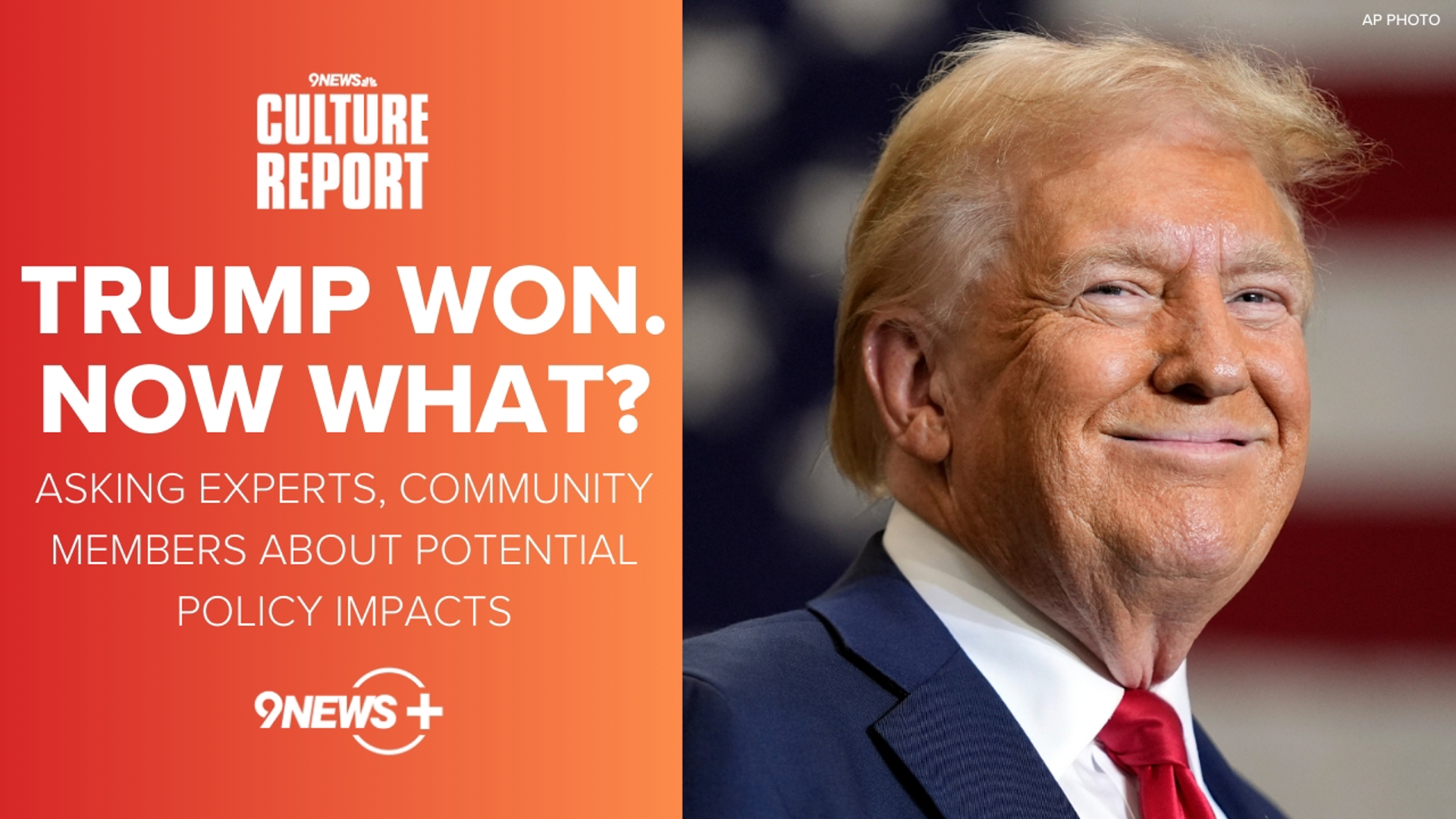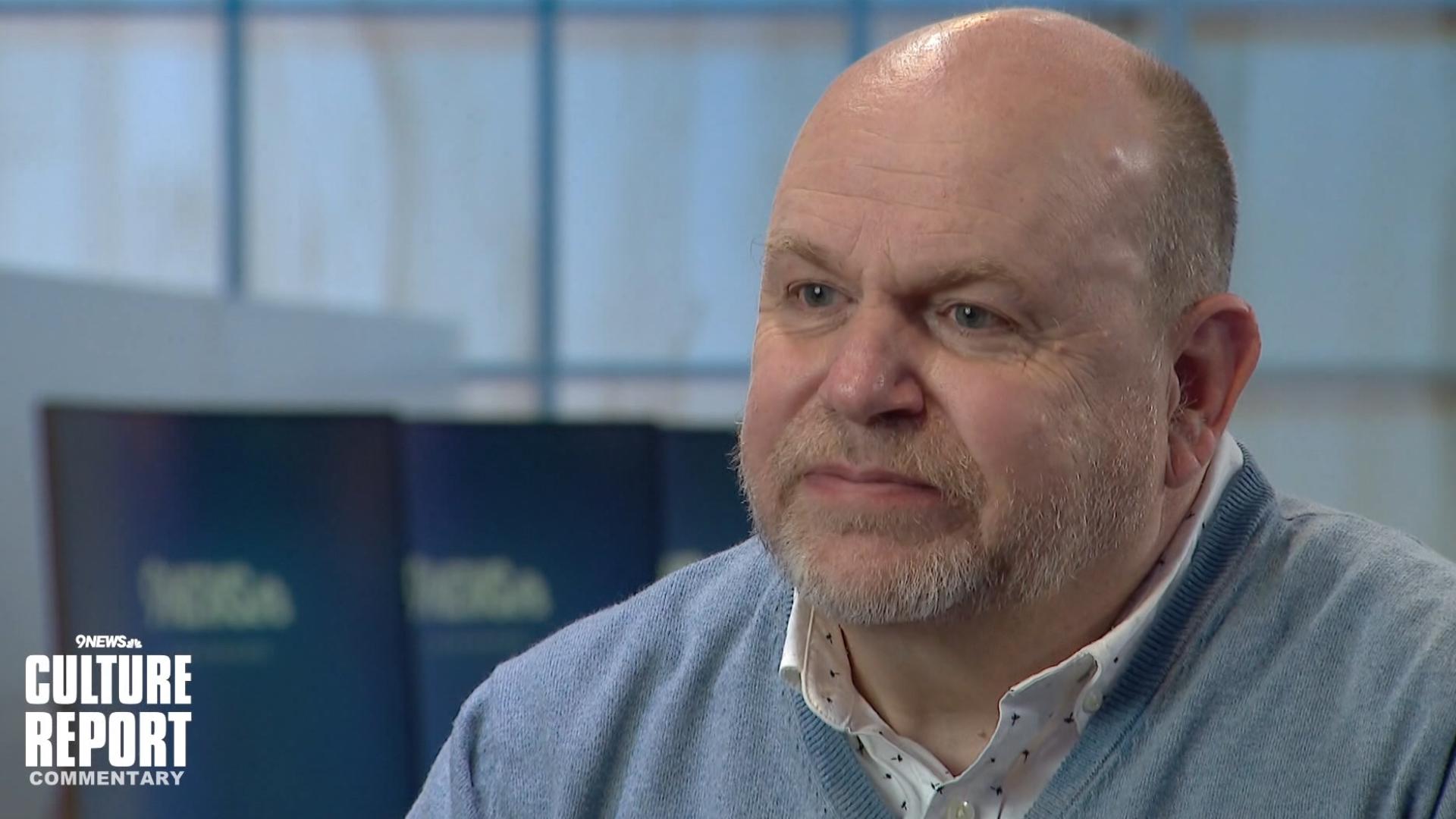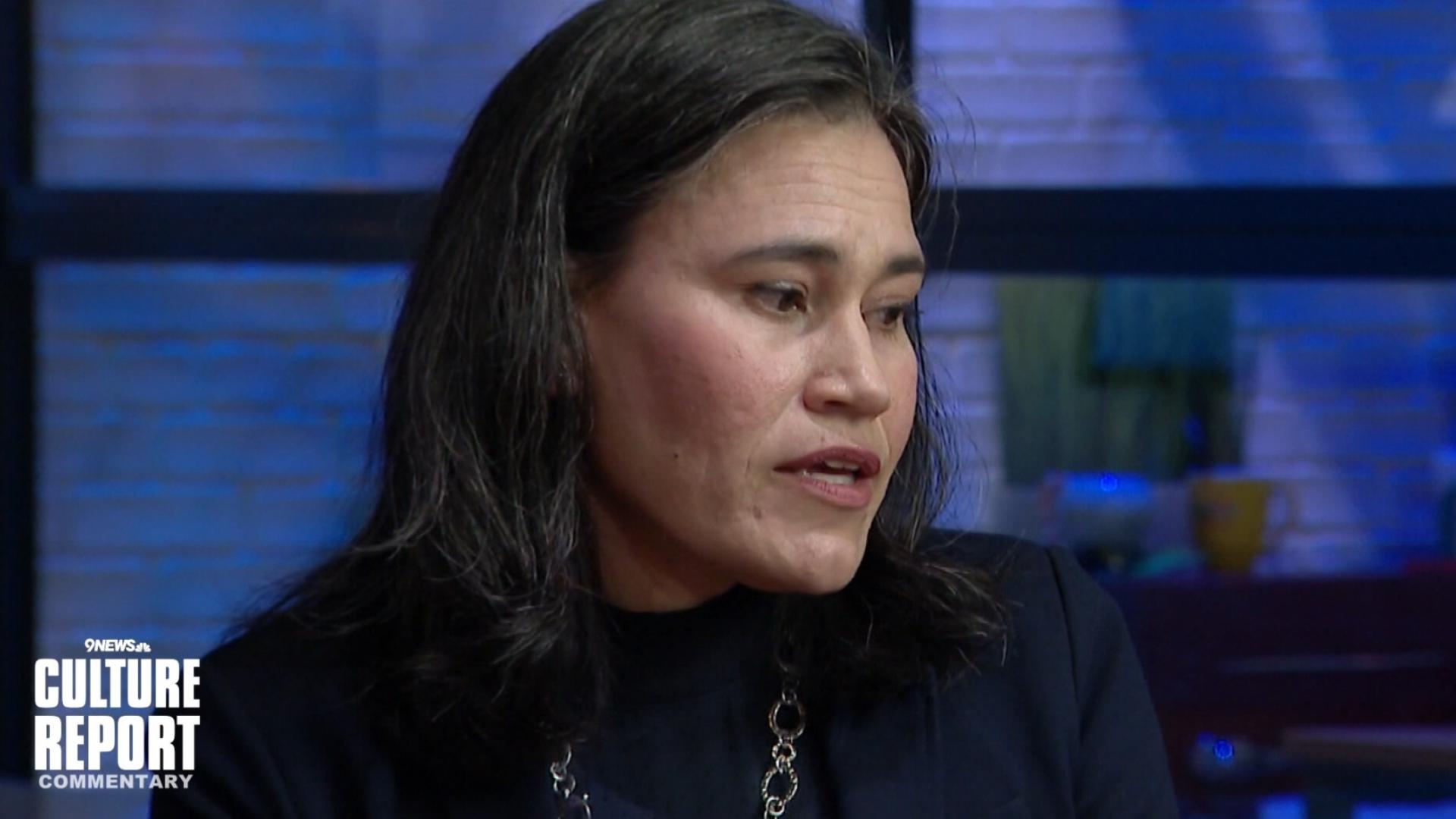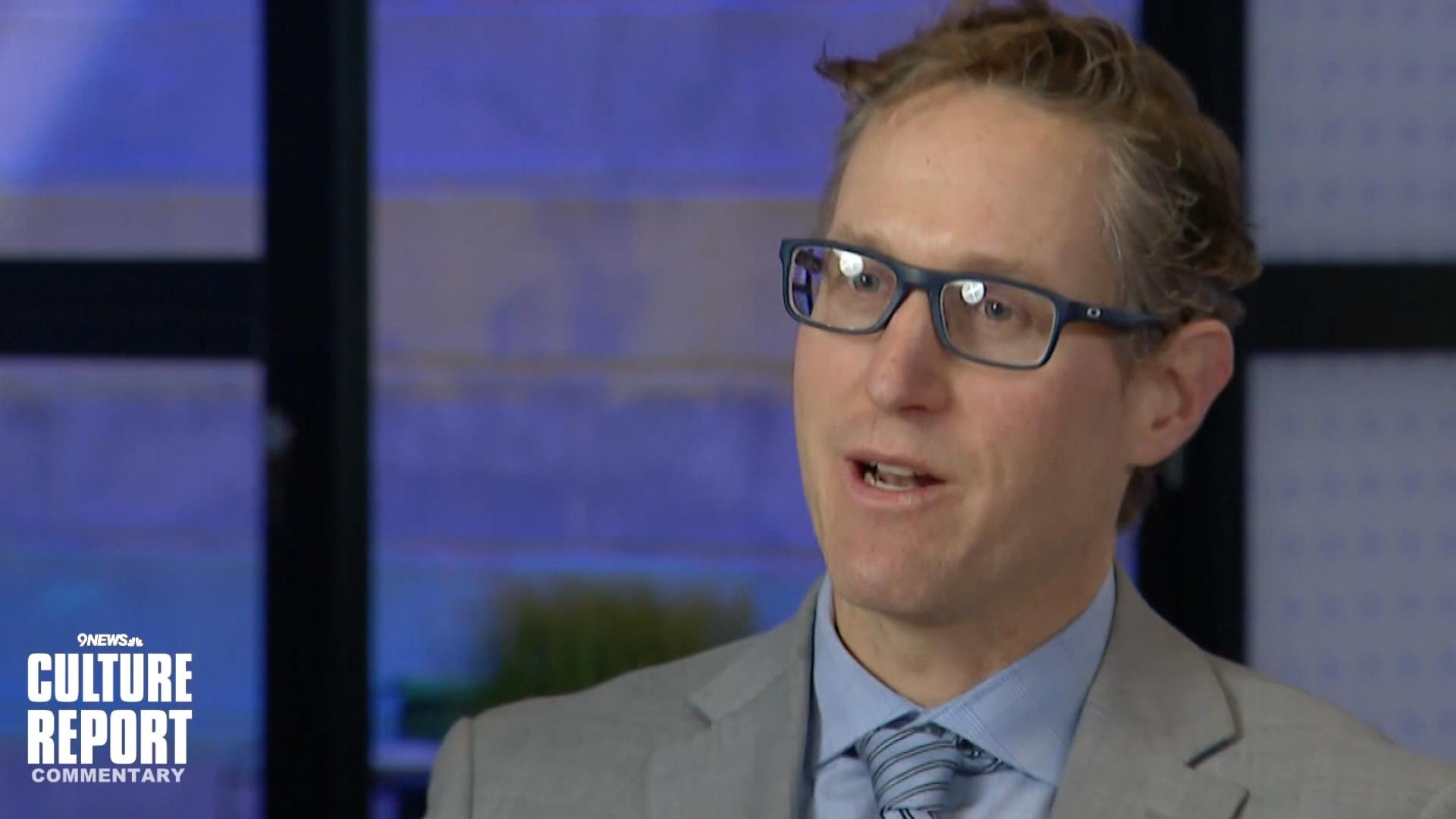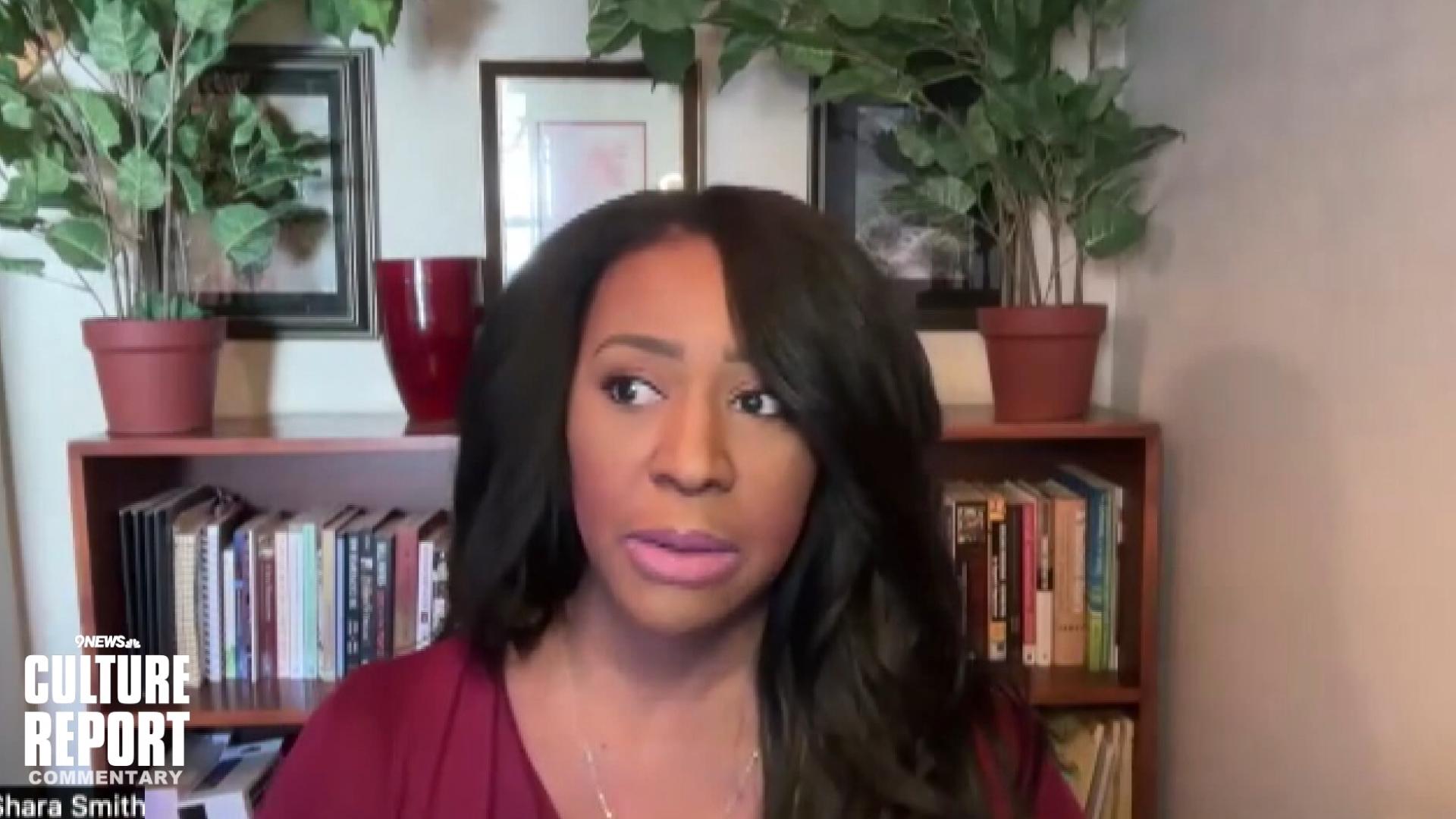Experts explain how Trump's policies could impact different communities
More than a week after Election Day, several issues remain top-of-mind for many American voters, including abortion, immigration, the economy, and LGBTQIA+ rights.
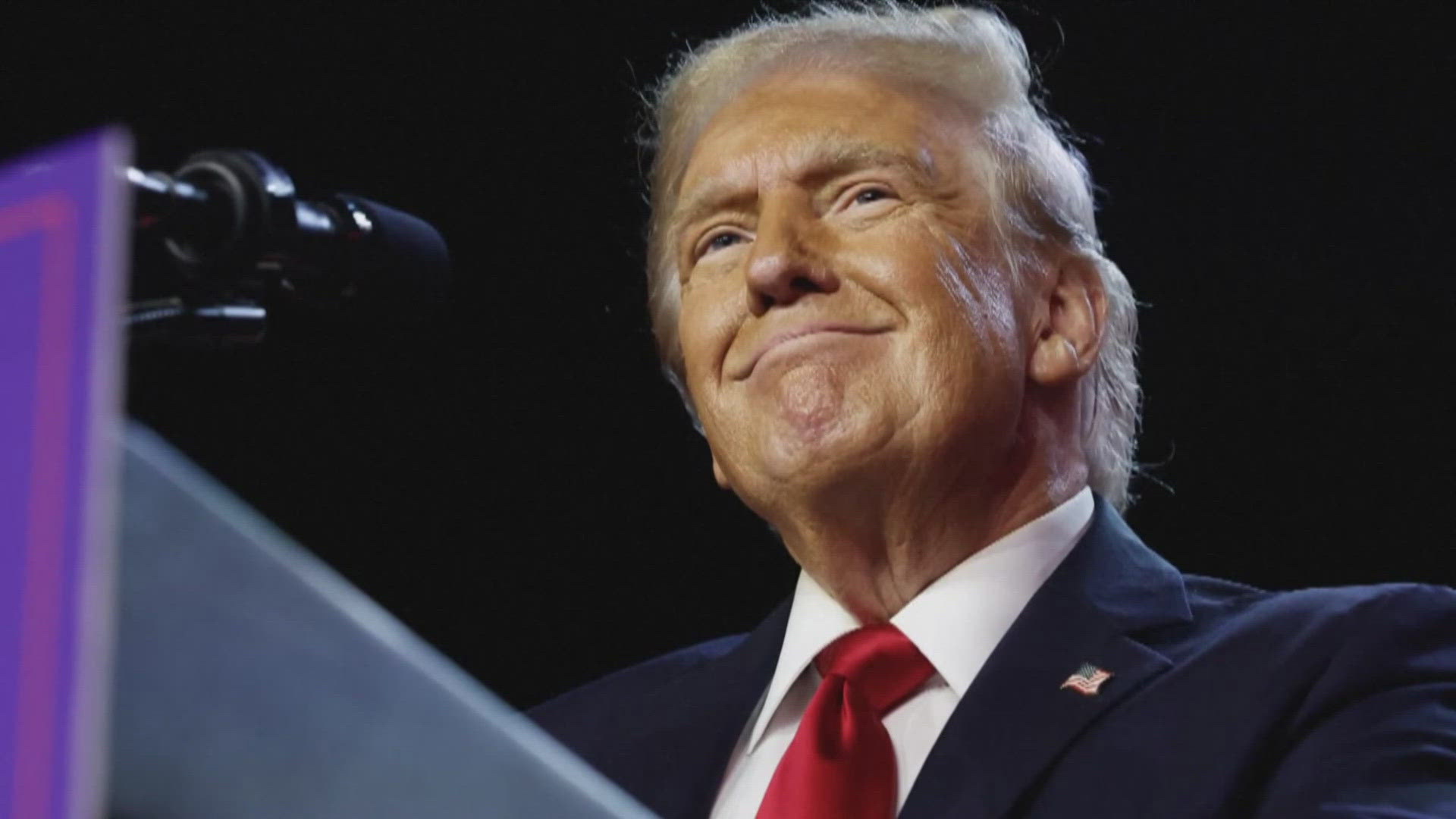
The Culture Report is a 9NEWS commentary show that focuses on issues impacting diverse and marginalized communities.
As the dust settles following the 2024 general election, many communities are left to question the potential impact of policies presented by President-elect Donald Trump.
On Nov. 5, people across the United States headed to the polls to cast their vote for president. In the early morning hours of the following day, Trump's victory was projected by the Associated Press. As race calls wrapped up, the country learned that Trump won a total of 312 electoral votes — more than 40 above the number needed to win the White House — with determining triumphs in crucial swing states. Vice President Kamala Harris, the Democratic candidate, earned 226 electoral votes.
More than a week after Election Day, several issues remain top-of-mind for many American voters, including abortion, immigration, the economy, and LGBTQIA+ rights. 9NEWS heard from people within these four spheres about discussions they're having in their respective communities.
Chapter 1 LGBTQIA+ Rights
One of the commitments made on the Trump 2024 campaign platform is to "keep men out of women's sports," which targets transgender individuals.
The "core promise" also appears on the official 2024 Republican Party Platform. Though the word "transgender" does not show up once in that document, Trump has spoken several times against allowing female athletes who were assigned male at birth to join women's sports teams.
The fifth point listed in chapter nine of the official GOP platform lists the following:
"We will keep men out of women’s sports, ban Taxpayer funding for sex change surgeries, and stop Taxpayer-funded Schools from promoting gender transition, reverse Biden’s radical rewrite of Title IX Education Regulations, and restore protections for women and girls."
Trump's campaign platform also called for punishment to educators and teachers who allow gender neutrality.
Additionally, during Trump's first administration, he banned transgender individuals from joining the military, a decision that was upheld by the U.S. Supreme Court. That was overturned when President Joe Biden took office in January 2021, but it's expected to be reinstated again.
9NEWS sat down with Rex Fuller, CEO of The Center on Colfax, to hear about how some members of the LGBTQIA+ community are feeling ahead of potential policy changes under the upcoming Trump administration.
"I think that people are just afraid that this may be, you know, a really severe rightward turn that may impact the community really heavily," Fuller said. "I think, probably, trans community members are most nervous."
He explained that, due to anti-trans messaging emphasized by the Trump campaign, folks are questioning what the future holds.
"I think there's also just a climate that has really encouraged a lot of prejudice against especially the trans community right now," he said. "And there certainly have been things said that are direct challenges to trans people's health care or their basic rights."
Fuller added that some of the language being spread is a direct challenge to trans people's health care and basic rights.
"For example, recently, President-elect Trump said that he intends to define gender as male or female as defined at birth, which doesn't really work for a lot of trans individuals," he said. "So it's very frightening to see which way the country will go."
Fuller also pointed out that many people who live in more conservative states are starting to flock to Colorado, a state with more protections for the LGBTQIA+ community.
"I think that there's a demand for a lot of health services that are already filling up," he said. "And with a great influx of people, that's just gonna become more and more challenging."
> Watch a clip of Fuller's interview about community reactions, the possible impact of Trump's campaign rhetoric and proposals, and more:
The Center on Colfax offers mental health resources and other services to members of the community. To learn more, visit their website or call 303-733-7743.
Chapter 2 Economy
The economy continues to be a hot-button issue for Americans, and many of the proposals listed on Trump's campaign platform also revolve around it. However, as with all of Trump's proposals, we'll have to wait until Trump is in office and gets Congress involved to see whether they are enacted and what their impact is.
One of Trump's biggest campaign promises is to raise tariffs to 60% on imports from China. That means American companies that sell those goods would likely raise prices for consumers to cover the higher import costs. The idea behind this is that it would incentivize American goods and jobs. A big question is whether the added revenue from higher tariffs would be able to pay for Trump's proposals that call for more spending.
Tax cuts are also a big part of Trump's proposals. In 2017, Trump implemented tax cuts that are set to expire next year. If these are extended, this could be good for taxpayers, but it would also mean fewer dollars for the federal government to pay for other parts of his plan. Trump also promised to end taxes on tips and overtime pay. Any federal tax changes would also have an impact on Social Security payments when we retire.
Trump, as well as the Republican Party, want less government impact on life — but government still costs, so you need the money, or you need to cut.
This was something mentioned by Dr. Francisca Antman, an economics professor at the University of Colorado Boulder, with whom 9NEWS discussed how Trump's policies could impact the future of the country's economy and why this issue might have been behind the votes of many Americans.
"Some of the policies that were proposed, in particular by the Trump campaign, were really, actually a lot of tax cuts, right, which without any kinds of decreases in expenditures for the government, would generally lead to higher deficits, and that certainly could also lead to higher inflation down the road," she said.
Recently, the Federal Reserve cut its interest rate by a quarter-point in an effort to support the job market and reduce inflation, which surpassed its target rate of 2%. Still, Antman said that many Americans — especially from younger generations — have experienced inflation at higher rates than many have seen in their lifetimes.
"Maybe other economic indicators don't necessarily, aren't necessarily as salient to people," she said. "And so I think that is, you know, one reality that potentially voters were responding to and thinking about that kind of experience. And so, I think maybe voters are hopeful that prices would, you know, maybe fall further."
Antman explained that voters may expect to do better because they'd be paying lower taxes, but they aren't internalizing potentially negative long-term effects, such as elevated deficits, higher interest rates and lower economic growth. Additionally, she pointed out that the proposed tax cuts proposed would seem to benefit high-income individuals more.
"It's, I would say, unclear how much of that really would end up flowing down to workers in the form of wages, or whether it would just be basically additional profits for, you know, owners of capital firms, those kinds of things," she said.
> Watch a clip of Antman's interview on proposed tax cuts, tariffs, and more:
Chapter 3 Immigration
When accessing the Trump campaign platform's website, one is met with a list of 20 promises: the first two have to do with the immigrants who either are in the United States, or who want to enter the country.
"Seal the border and stop the migrant invasion" is at the very top of the list, followed by "Carry out the largest deportation operation in American history." Trump has stated that his plan is to remove 12 million undocumented people from the country, and he's claimed that his mass deportation plan would start in Aurora, Colorado, and Springfield, Ohio.
During the presidential debate against Vice President Kamala Harris in September, the president-elect pushed falsehoods about migrant groups in both cities, including the unsubstantiated claim that Aurora has been overrun by Venezuelan gangs. At a Colorado rally, Trump told attendees that he would start these efforts in Aurora and would enact "Operation Aurora" to deport gang members specifically.
His pick for border czar is Tom Homan, Trump's former acting head of ICE. Homan acknowledged that Democrat-led cities are unlikely to help with detaining people who are in the U.S. illegally, which would force the feds to act with their limited number of immigration agents. He told 60 Minutes that families can avoid being separated by being deported together and suggested using local police, the national guard, or the military to do it.
Under Colorado law, it is illegal to use local police as a deportation force.
With many immigration policies proposed, some people wonder how feasible they are. In an interview with 9NEWS, immigration lawyer Matt Shaftel discussed why he doesn't think mass deportations, Trump's most ambitious proposal, are likely.
"To actually deport somebody in the interior of the country takes a lot of resources," he said. "You have to place them in immigration court. You have to arrest them, detain them, and there's a lot of process around that. Trump actually deported less than Obama did. It's a lot of process."
Shaftel's perspective is that there's no significant risk for immigrants who have been in the United States for a long period of time, do not have a criminal history, and have not had prior deportation orders.
Nevertheless, he said there is something Trump can do to deport people faster: expanding what is known as the expedited removal process. He explained that the process is synonymous with giving someone a formal order to leave the country, which is radically different from going to an immigration court, where someone can make their case in front of a judge.
"Expedited removal is a power that is traditionally used at the border, where an immigration officer is the judge and jury and can issue an order to deport you from the country within one day," Shaftel said. "To enforce that order may take a little bit longer to communicate with that person's country, but it's a much, much faster process."
Currently, 16 countries are under Temporary Protective Status (TPS) in the United States. As designated by the secretary of Homeland Security, anyone from those countries has protections in the U.S. Shaftel said a second Trump administration puts this at risk.
"Trump, again, during his first term, tried to eliminate a number of countries from TPS status," he said. "It was stopped by litigation, and that litigation ran all the way into 2021, by the time Biden came back into office. So there is a fear that he [Trump] could be much more effective at ending TPS."
> Watch a clip of Shaftel's interview on expectations ahead of a second Trump presidency, potential policy consequences, and more:
Chapter 4 Reproductive Rights
If Congress were to try to enact an outright abortion ban, Trump would need to sign it. He has said abortion access or restriction is up to the individual states.
Currently, 41 states have active abortion bans: 13 of them have a total abortion ban and 28 have gestational-dependent bans. By approving Amendment 79 in the 2024 general election, Colorado voters recently enshrined abortion access into the state's constitution, which means that even a future conservative state legislature could not change that.
The Interfaith Alliance of Colorado, a nonprofit that focuses on education and advocacy, was part of the campaign to pass Amendment 79.
"Because ultimately, when we create public policy based on one faith tradition, or a faction of a faith tradition, we inevitably infringe on the rights of every single person who does not practice that faith," said Shara Smith, CEO of the Interfaith Alliance of Colorado, in an interview with 9NEWS.
Smith said she expects the post-Roe surge of people coming to Colorado from states that don't have the same reproductive health care protections to increase.
"It definitely places a burden on service providers here in Colorado because they're physicians, they want to provide the health care that people need," she said. "I also think that there is some inherent danger to individuals from those states because, as we've seen already with multiple examples, when pregnant individuals are seeking health care, reproductive health care in particular, there might be a time constraint, their life could be in danger."
Smith also highlighted her community's fear regarding whether the incoming administration is going to embrace Project 2025.
Project 2025 — launched in 2022 by the Heritage Foundation, a conservative think tank — is a governing blueprint that lists policy suggestions for the next conservative president. Though Trump has disavowed Project 2025, the president-elect has several ties to it.
"Based on Project 2025, it is clear that marginalized communities are going to be further targeted, more than they have been," she said. "And it's across the board when you're talking about, not only policy, but also things around education."
> Watch a clip of Smith's interview about reproductive health care and how some marginalized communities could be targeted:
Whether President-elect Trump's proposals become more than campaign promises remains to be seen until he is sworn into office in January 2025.
Watch this full episode of the Culture Report:


